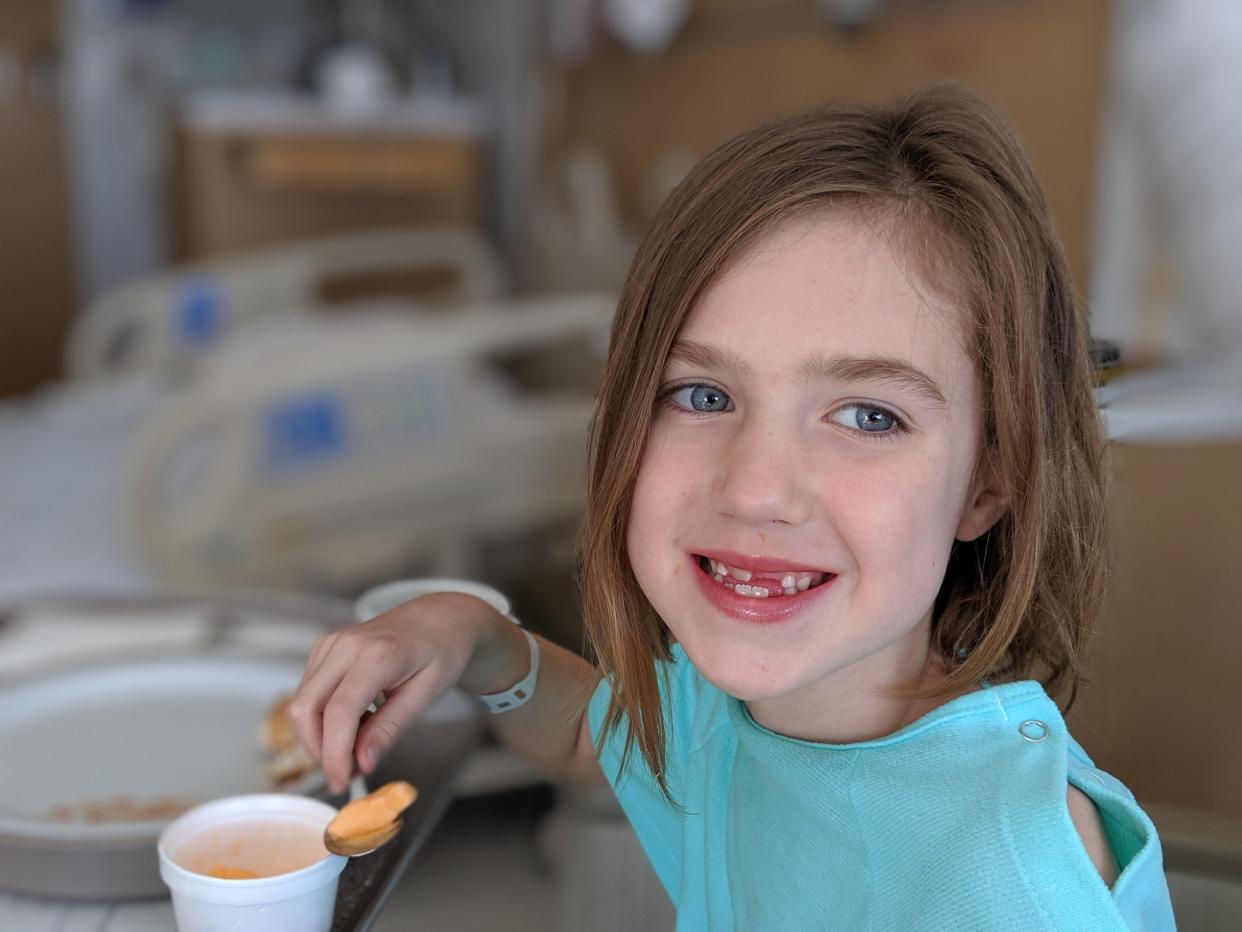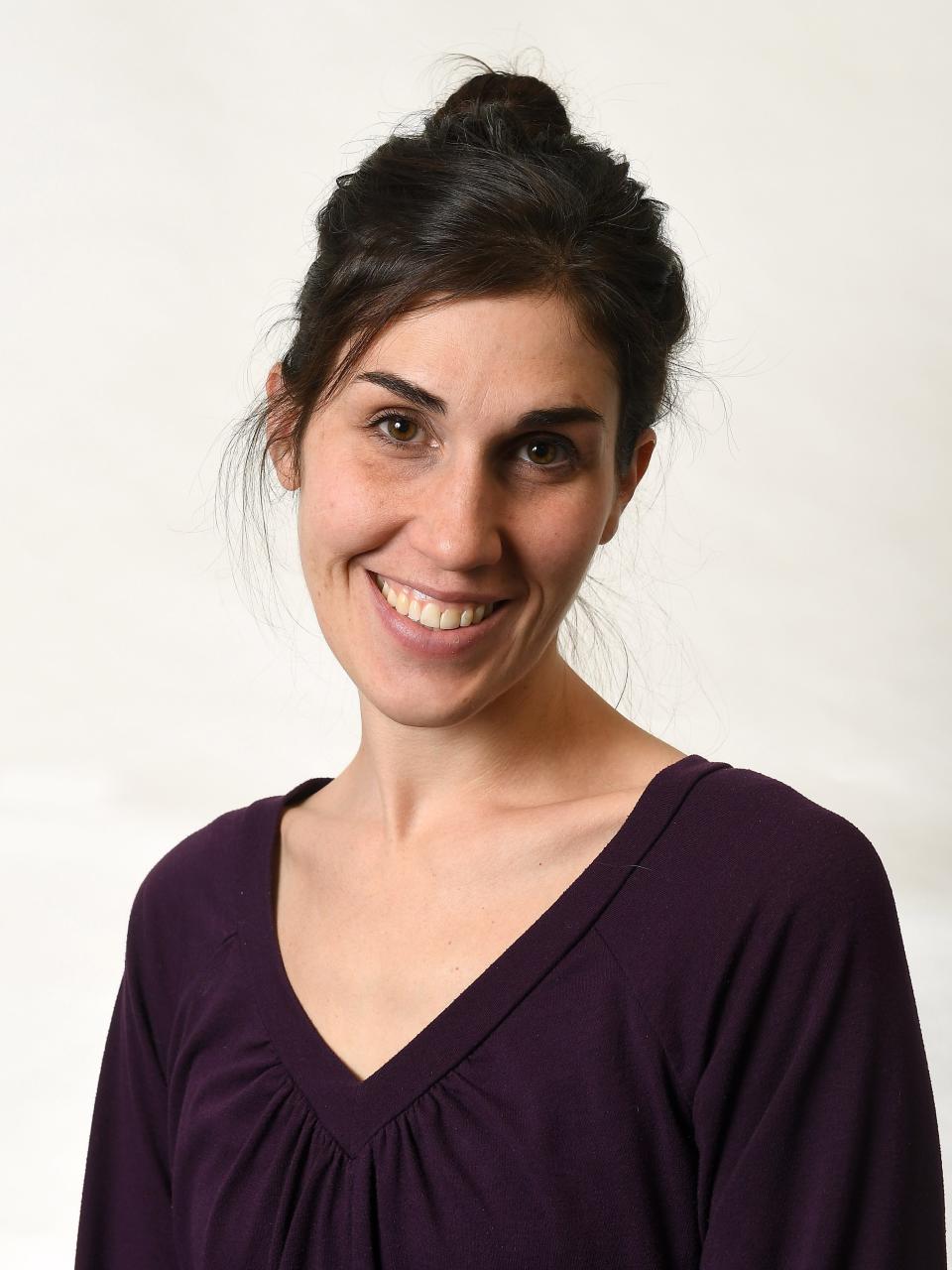Abbey's Road: Four years into diabetes diagnosis, a lesson in fortitude

Four years ago today, I was a ball of nerves — calm on the outside, exploding within — as I drove our then-6-year-old to an appointment with our family doctor because a few things just weren’t right. She was always so thirsty; always so hungry. (The latter, actually, was nothing new, but the constant requests for water and subsequent bathroom breaks were definitely out of the norm.)
She’d always been built like a beanpole, but I’d noticed in recent weeks the way her knees stuck out from her long, lean legs in a way that felt … wrong, somehow. I chalked it up to a growth spurt, refusing to let my mind entertain other possibilities.
Abbey's Road: Making kindness count
She also was just tired. Didn’t have the energy to run and play outdoors as she’d always been so fond of doing; would rather sit in the shade on the porch and watch as her friends climbed the tree or tossed a ball in the yard. Moms will know: There was just. Something. Off.
The night before our appointment, I’d finally broken down and Googled her symptoms. And for once, the internet steered me in the right direction. It was the first time “Type 1 diabetes” (formerly known as “juvenile diabetes”) had ever really crossed my radar, but as I read over the signs and symptoms, I became increasingly convinced this was what we were walking into.
I went to bed that night fairly certain it would be our last “normal” night in a long time, if not forever.
And I was right.

On the morning of Oct. 8, I sent The Architect off to school and had a couple hours to kill before our appointment.
Not wanting to go home, I drove to my parents’ empty house down the road, sat on their living room floor and prayed that somehow this was a bad dream, and it would all just go away. Or that the symptoms were of something else — something less permanent, less life-altering.
But that didn’t happen, and an hour later, I sat with my daughter in our family doctor’s sterile examining room and listened to him say — in not these exact words — that our lives would never be the same.
We drove to Nationwide Children’s Hospital and in two days relearned how to live our lives. How simple things like eating a bowl of cereal before school in the morning would become infinitely more complex (four years later, we don’t really do cereal). How, like parents of babies who become accustomed to carrying diaper bags everywhere they go, there will always be extras that travel with us — devices, needles, pens, alcohol wipes; little vials of a clear, life-sustaining hormone called insulin that serves as the difference between life and death for our child, whose pancreas does not function properly by no fault of her own.
I remember during those days in the hospital and afterward thinking that I wished I could download all the information I would need to take care of her. If only there was some fast way that I could study and learn and KNOW what I would need to know in order to tackle this massive new piece of our lives, the weight of which felt impossibly heavy. Like life or death.
But for as many advances as humanity has made, we have yet to make such a thing possible. So we, her parents, had to learn the long and hard way: by studying and observing and DOING. By making mistakes and learning from our failures. By slowly but surely doing hard things.
And it has been hard, but it’s been good.
Abbey's Road: Choosing gratitude over fear with Type 1 diabetes
Four years after that day, I wish I could travel back in time to tell myself that it’s going to be OK and don’t worry so much. I wish I could help my four-years-ago self to feel less overwhelmed, to remind her that yes, even though the stakes are high, you have many tools at your disposal.
I wish I could tell that scared mama that she needs to take it a day at a time, to learn as she goes along and not feel like she has to know it all at once. That yes, she will make mistakes. But that’s part of the growth process.
Four years after that day, our family has learned a lot about Type 1 diabetes and a lot about our daughter and a lot about ourselves. Our girl, now 10, is strong and resilient and brave. She is coming out of her shell and doing amazing things, and I am so very proud of her. Me? I’m still learning, still doing, still growing. We have technology on our side and a wealth of information available to us.
Like many parents, we pray for a cure. But until then, we keep doing. And keep learning. And keep growing. Because our girl is worth it.
Abbey Roy is a mom of three girls who make every day an adventure. She writes to maintain her sanity. You can probably reach her at amroy@nncogannett.com, but responses are structured around bedtimes and weekends.
This article originally appeared on Newark Advocate: Abbey's Road: Daughter's diabetes diagnosis a lesson in fortitude

